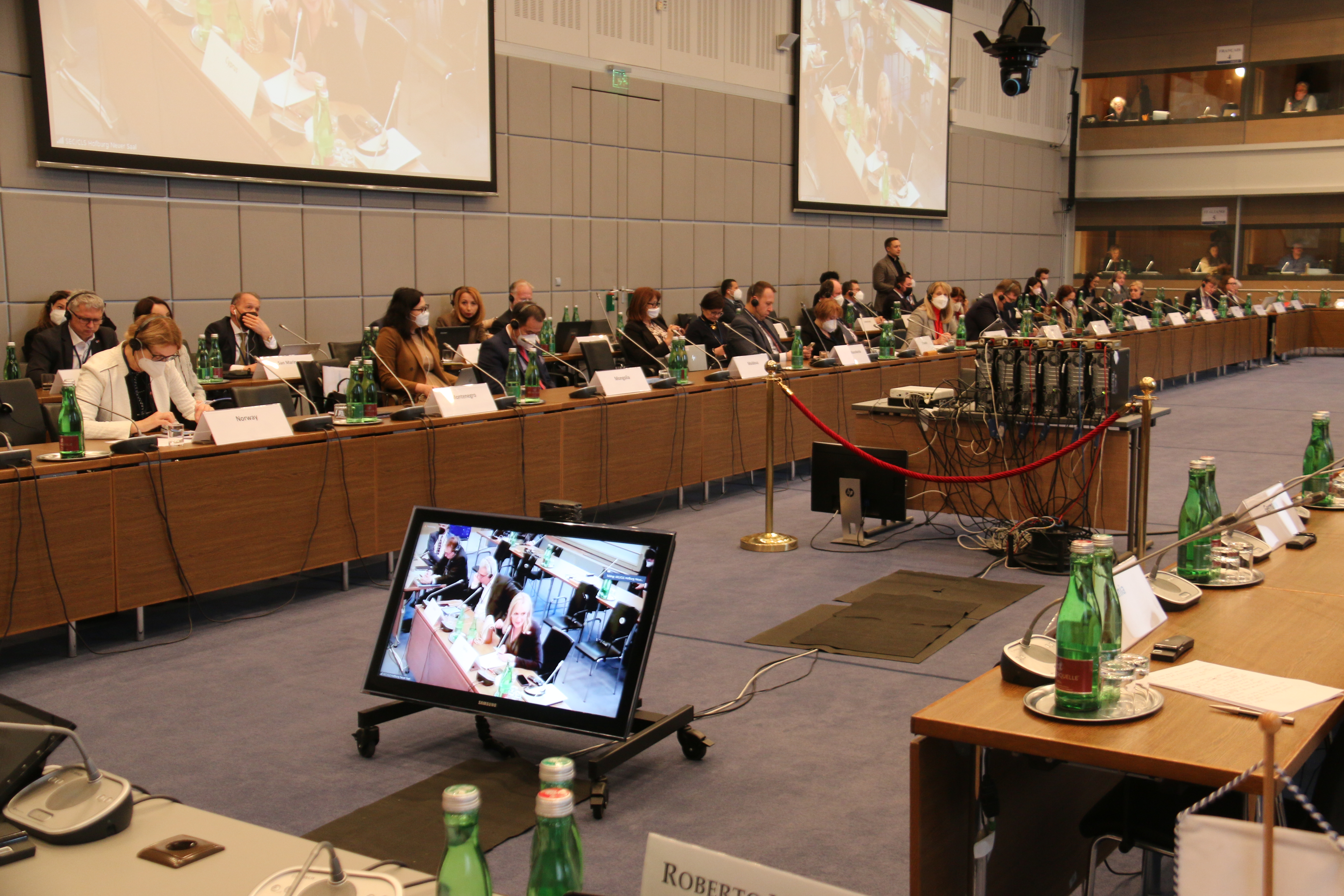Austria

European Energy Security Post-Russia
Jun 07, 2022Russia is weaponizing energy to prolong its unlawful invasion of Ukraine. Unfortunately, the sanctions that Europe and the United States have put in place have not been enough to curb […]
European Energy Security Focus of Upcoming Helsinki ...
Jun 02, 2022WASHINGTON—The Commission on Security and Cooperation in Europe, also known as the Helsinki Commission, today announced the following hearing: EUROPEAN ENERGY SECURITY POST-RUSSIA Tuesday, June 7, 2022 2:30 p.m. Watch […]

At OSCE PA Winter Meeting, U.S. Legislators Unite wi...
Mar 07, 2022By Ryn Hintz, Max Kampelman Fellow From February 20 – 26, 2022, Helsinki Commission Co-Chairman Rep. Steve Cohen (TN-09) led a bipartisan Congressional delegation to the Winter Meeting of the […]

Helsinki Commission Digital Digest February 2022
Mar 01, 2022
Co-Chairman Cohen Discusses European Unity Against R...
Feb 28, 2022Mr. Speaker, last week, I led a bipartisan group to visit Lithuania and the OSCE meeting in Vienna, Austria. In Lithuania, we met with the leaders and assured them of […]
Co-Chairman Cohen Discusses European Unity Against R...
Feb 28, 2022Mr. Speaker, last week, I led a bipartisan group to visit Lithuania and the OSCE meeting in Vienna, Austria. In Lithuania, we met with the leaders and assured them of […]
Cardin and Wicker Discuss July 2021 Congressional De...
Jul 21, 2021Mr. CARDIN. Madam President, I take this time to talk about the work of the U.S. Helsinki Commission in a recent opportunity we had to participate in the OSCE Parliamentary […]
Helsinki Commission Delegation Advances Priority Iss...
Jul 15, 2021WASHINGTON—Helsinki Commission Chairman Sen. Ben Cardin (MD) and Ranking Member Sen. Roger Wicker (MS) last week led a U.S. delegation to the 2021 OSCE Parliamentary Assembly (PA) Annual Session in […]
Sweden’s Leadership of the OSCE
Jun 11, 2021In 2021, Sweden chairs the world’s largest regional security organization—the Organization for Security and Cooperation in Europe (OSCE)—which comprises 57 participating States stretching from North America, across Europe, and to […]
COVID-19 Vaccination Rollouts Expose Underlying Ineq...
Jun 07, 2021By Michelle Ngirbabul, Max Kampelman Fellow, and Shannon Simrell, Representative of the Helsinki Commission to the U.S. Mission to the OSCE More than one year into the COVID-19 pandemic, over […]
Swedish Foreign Minister Ann Linde to Appear at Hels...
Jun 03, 2021WASHINGTON—The Commission on Security and Cooperation in Europe, also known as the Helsinki Commission, today announced the following online hearing: SWEDEN’S LEADERSHIP OF THE OSCE Priorities for 2021 Friday, June […]

Helsinki Commission Commemorates 45 Years of Advanci...
Jun 03, 2021WASHINGTON—To commemorate the 45th anniversary of the Commission on Security and Cooperation in Europe, also known as the U.S. Helsinki Commission, on June 3, Chairman Sen. Ben Cardin (MD) and […]
